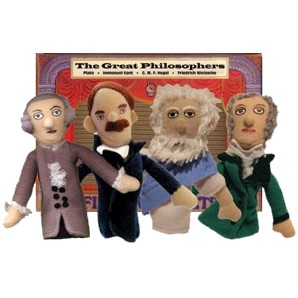Saturday, May 29, 2010
Pentecost season book review: Holy Spirit. Contemporary and Classic Readings
For too long the Spirit in Christian thought has been stereotyped, ignored as the forgotten person of the Trinity, left to the Charismatics and Pentecostals. With the church celebrating Pentecost last week, it is surely a season for us all to be reading around the third person of the Trinity. A book like The Holy Spirit: Classic and Contemporary Readings is well worth investing in. (Make sure you order the paperback edition, because the hardcover price is simply ridiculous). The book gathers readings from across the centuries – 20th century, Syriac, Early Greek, Latin, Orthodox, Mystical. While there are a range of texts of the Spirit, this book does a superb job of gathering a rich range of material from diverse cultures and contexts.
A feature of the readings is their genre – while some are theology texts, others are sermons, or songs, or art works, or descriptions of liturgy. As such it reminds us of how much theological work can be done by the church – in our Pentecost sermons, in the songs we sing about the Spirit, in the art we promote, in the words we say at communion and baptism.
Each reading has a helpful introduction by the editor, theologian Eugene Rogers. (I’ve noted before here and here his excellent After The Spirit: A Constructive Pneumatology From Resources Outside The Modern West). Rogers’ introductions are worth the price of the book alone, drawing attention to nuance, layer and complexity.
One gripe is the lack of readings from the contemporary Pentecostal or charismatic world. There is now quite enough material to have provided such a section. Is the absence yet another indication that the problem the church has with the Spirit is not just historic, but still contemporary?
Thursday, April 08, 2010
the spirit today: a theology with popular culture
“a work of outstanding scholarship”
That’s the blurb for a book just out, The Spirit of Truth: Reading Scripture and Constructing Theology with the Holy Spirit, in which I have a chapter.
The book began as a conference, back in 2008, which gathered around what is one of the most interesting and growing fields in theology at the moment, that of the study of the Spirit. My chapter sought to provide a theological method by which one might read popular culture. I argue, drawing on Luke 10 and art in relation to the Transfiguration, that in the action of the Spirit in the New Testament, we see that God likes material things – wombs and water, bodies and bread – and this can be applied to help us understand a theology of popular culture and in a more naunced way than if we use an Incarnational approach.
The book has got some great endorsements:
“This ‘pneumatology from below’-not in the methodological but in the geographical sense: from New Zealand-extends the contemporary renaissance of the discussion on the doctrine of the Holy Spirit across the theological loci and disciplines. A veritable pneumatological contribution indeed by Myk Habets and his colleagues from Down Under.”
—Amos Yong, J. Rodman Williams Professor of Theology, Regent University
“There has been a resurgence of interest in the Holy Spirit in recent years and this wide-ranging book edited by Myk Habets, who is quickly becoming a major contributor to discussions of the Spirit in contemporary theology, offers reflections that are profoundly theological and sometimes provocatively challenging but always helpful in pushing theologians to think more precisely about the pneumatological dimensions of theology”
—Paul D. Molnar, Professor of Systematic Theology, St. John’s University, New York
“The theology of the Holy Spirit has undergone something of a renaissance in recent times: this collection reflects a valuable contribution to that cause. These are stimulating essays on a range of vital topics in biblical, dogmatic, and practical pneumatology-scripturally responsible, historically informed, and justly conscious of the potentially transformative significance of their theme for Christian existence in the world.”
—Ivor J. Davidson, Professor of Systematic & Historical Theology, University of St. Andrews
Friday, February 19, 2010
purchased: philosophers fingerpuppets, now wanted: theologians fingerpuppets
These little people are being ordered today:
the philosophers fingerpuppets, care of my Ministry Enhancement Allowance, in preparation for some upcoming input.
At Spirit of Wonder: imagining a church immersed in culture (part of the Adelaide Fringe Festival, more info here), I am providing two blocks of input. One is on imagination, leadership and culture, the other on the Spirit, the Bible and culture.
In a moment of mad randomness with Craig yesterday, I was talking about how imagination has a history and the need for us to find our story within that history. Craig, totally lateral thinker that he is, mentioned a shop that sold philosophers fingerpuppets. Nietzsche, Plato and Kant. Who all had things to say about imagination! Who all deserve to make an appearance at the Spirit of Wonder!
So that’s the creative spark that suddenly clicked the first session. Yes!
Which only leaves the second session – theologians fingerpuppets – like Moses and the tabernacle makers, like Deborah and Hannah, like Mary and the 70/2 anonymous in Luke 10, like Peter – who all also deserve to make an appearance at Spirit of Wonder, because they all have a lot to say about imagination and a church immersed in culture.



















